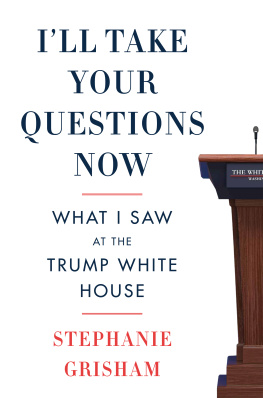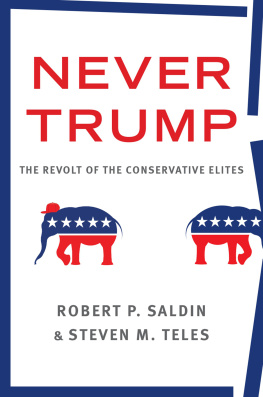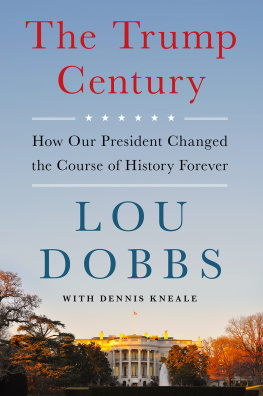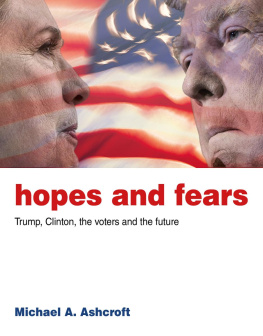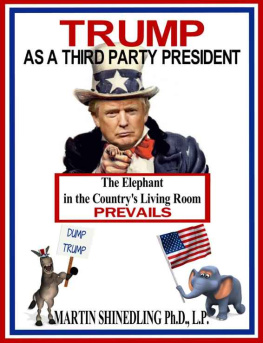Stephanie Muravchik - Trump’s Democrats
Here you can read online Stephanie Muravchik - Trump’s Democrats full text of the book (entire story) in english for free. Download pdf and epub, get meaning, cover and reviews about this ebook. genre: Politics. Description of the work, (preface) as well as reviews are available. Best literature library LitArk.com created for fans of good reading and offers a wide selection of genres:
Romance novel
Science fiction
Adventure
Detective
Science
History
Home and family
Prose
Art
Politics
Computer
Non-fiction
Religion
Business
Children
Humor
Choose a favorite category and find really read worthwhile books. Enjoy immersion in the world of imagination, feel the emotions of the characters or learn something new for yourself, make an fascinating discovery.

- Book:Trump’s Democrats
- Author:
- Genre:
- Rating:5 / 5
- Favourites:Add to favourites
- Your mark:
- 100
- 1
- 2
- 3
- 4
- 5
Trump’s Democrats: summary, description and annotation
We offer to read an annotation, description, summary or preface (depends on what the author of the book "Trump’s Democrats" wrote himself). If you haven't found the necessary information about the book — write in the comments, we will try to find it.
Trump’s Democrats — read online for free the complete book (whole text) full work
Below is the text of the book, divided by pages. System saving the place of the last page read, allows you to conveniently read the book "Trump’s Democrats" online for free, without having to search again every time where you left off. Put a bookmark, and you can go to the page where you finished reading at any time.
Font size:
Interval:
Bookmark:
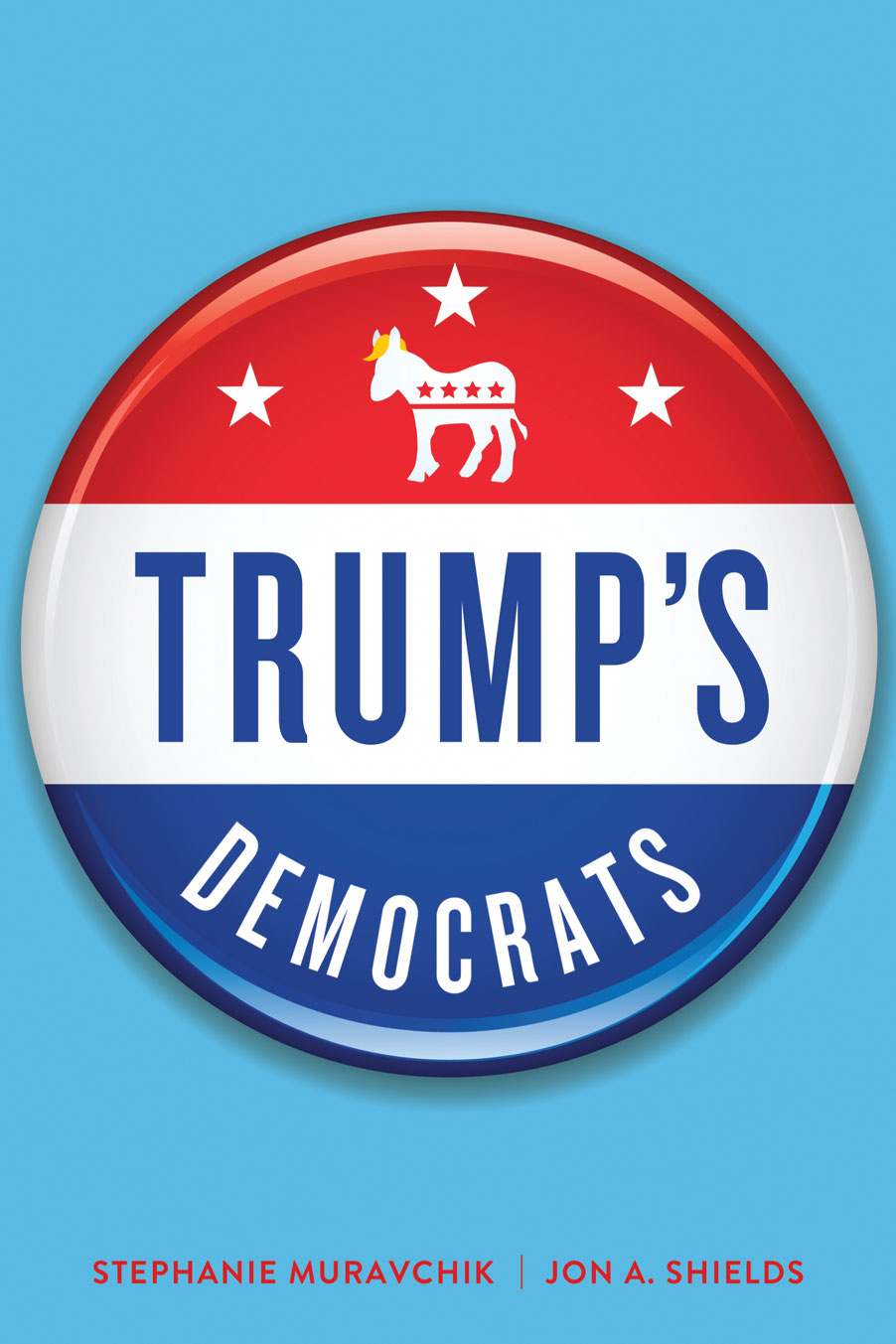
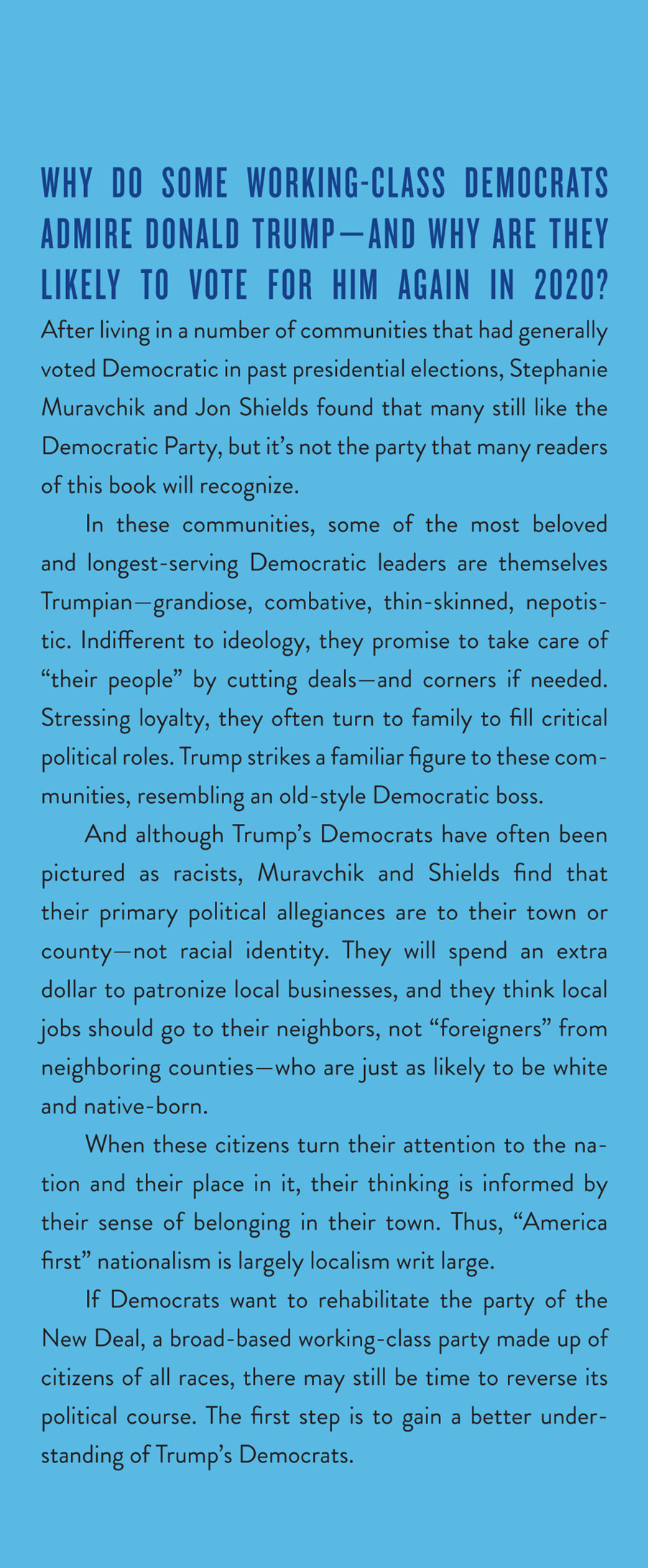
TRUMPS DEMOCRATS
STEPHANIE MURAVCHIK
JON A. SHIELDS
BROOKINGS INSTITUTION PRESS
Washington, D.C.
Copyright 2020
THE BROOKINGS INSTITUTION
1775 Massachusetts Avenue, N.W.
Washington, D.C. 20036
www.brookings.edu
All rights reserved. No part of this publication may be reproduced or transmitted in any form or by any means without permission in writing from the Brookings Institution Press.
The Brookings Institution is a private nonprofit organization devoted to research, education, and publication on important issues of domestic and foreign policy. Its principal purpose is to bring the highest quality independent research and analysis to bear on current and emerging policy problems. Interpretations or conclusions in Brookings publications should be understood to be solely those of the authors.
Library of Congress Control Number: 2020941758
ISBN 9780815738633 (pbk : alk. paper)
ISBN 9780815738640 (ebook)
9 8 7 6 5 4 3 2 1
Typeset in Minion Pro
Composition by Elliott Beard
To our brothers and sisters
Valerie, Madeline, David, Lisa, and Bruce
This book was made possible by many generous supporters. In the weeks after the 2016 election, Claremont McKenna Colleges Peter Uvin and Hiram Chodosh stepped in to provide us with funds to conduct our initial fieldwork in Rhode Island. The following summers, our fieldwork was generously funded by the Randolph Foundation. George Thomas at Claremonts Salvatori Center also supported our work in myriad ways. We are indebted to Brookings Institution Press, especially its editor Bill Finan. Bill gave our book the care and attention it needed as we scrambled to get it in print. Our copyediter, Olga Gardner Galvin, expertly and swiftly cleaned up our prose.
We are also thankful to many scholars who carefully read our manuscript and offered thoughtful suggestions, including Will Barndt, Zach Courser, Lily Giesmer, Susan McWilliams, Shep Melnick, Steven Teles, George Thomas, Jon Zimmerman, and Phil Zuckerman. We are especially grateful to Josh Muravchik, who line-edited the manuscript, greatly improving its clarity and cogency. We are also indebted to many research assistants at Claremont McKenna College, including Elena Castellanos, Richy Chen, Justin Coopersmith, Brooklyn Montgomery, Dylan Porter, Harrison Schreiber, Hallie Spear, Jensen Steady, and Michael Wirth. They enhanced our research with their insights and youthful energy. We also owe a debt to the community of scholars who have attempted to understand Trumps supporters. Engaging and learning from their scholarship enlightened us and enriched our work.
Others helped us in more practical ways. Garrett Brown, our generous friend and accomplished editor, offered us needed counsel at nearly every turn. And Shep Melnick came to our rescue at a critical moment.
We owe a special debt to the many citizens who opened their homes, lives, and towns to us, especially Gayle Clevenger, Richard Delfino, John Dick, Tim Forsberg, Paul Giarrusso, Jeff Hendred, Linda and Roger Jarrells, Greg Kenning, Miriam Kenning, Myron Lewis, Matt Milner, Tony Passito, Jerry Parker, Joe Polisena, Alex Stroda, the Skaggs family, Dewey Smith, Stephen Ucci, and many others. This book would not be possible without their generosity. We hope they find the result a careful and honest attempt to understand their worlds.
And, finally, we are grateful to our families, who make all things possible. To our beloved siblingsour lifelong friends and kindest criticswe dedicate this book.
Even by twenty-first-century standards, the 2016 election was unusually polarizing. Some Americans were elated. Othersourselves includedwere aghast. Paul Krugman, the longtime syndicated columnist for the New York Times, spoke for many of his readers when he confessed to feeling an overwhelming sense of despair as the final votes were being tallied. Before election night, Krugman presumed that whatever their partisan differences, the vast majority of Americans shared basic values. But the election exposed an unknown countrya foreign land where American citizens apparently disdained democratic norms and the rule of law.
At the time, Krugman probably was not aware that the unknown country he supposed was crowded with bad democrats, was, in fact, full of his fellow Democrats. Almost one-third of the counties that voted twice for Obama went for Trump. And many of them had not just supported Obamathey had also been loyal to the Democratic Party for decades (see the table in the appendix). Some had not even supported a Republican president since prior to the New Deal. In fact, one countyElliott County, Kentuckyhad never voted for a Republican candidate since it was formed in the 1860s, the longest Democratic voting streak in the nation. Yet Trump won 70 percent of the vote in Elliott Countya place where the ratio of registered Democrats to Republicans is similar to San Franciscos.
It is true, of course, that voters sometimes cross party lines. We are accustomed to referring to Nixon Democrats in 1972 and Reagan Democrats in 1984. However, those elections were landslides. Nixon won every state except for Massachusetts, while Reagan won every state but Minnesota. Thus it is not surprising that Republican candidates won many loyal Democratic towns and counties in those years. The 2016 election, however, was not at all like those of 1972 or 1984. Trump lost the popular vote. Nevertheless, he managed to win some of the most loyal Democratic communities in the nation.
It has been observed that the 2016 election widened the gulf that separates red from blue communities and exposed disturbing new social fissures in places where many had thought there was solid ground. Less noted is the fact that Trumps ascent opened a new divide between some of the most loyal blue communities, pitting the partys highly educated metropolitan centers and college towns against small communities populated by white working- and lower-middle class citizens. In the former places, Trump is a reviled character, seen as the worst president in American history, maybe even a fascist. In the latter places, Trump is often regarded as the best president anyone can remember since John F. Kennedy. The polarization of Democratic communities shows that Trump created a political fault line even deeper than partisanship.
Studying Trumps Democrats
This book sheds new light on the political chasm that ripped the Democratic Party apart in 2016 and considers what it means for the future of the party and of American democracy. We do so by presenting evidence from our ethnographic study of three long-standing Democratic communities that voted for Trump: Ottumwa, Iowa, which had been consistently Democratic since 1972; Elliott County, Kentucky, which, as we mentioned, had never voted for a Republican president in its history; and Johnston, Rhode Island, which last voted Republican in 1984. These places have been so faithful to the party that they mostly ignored conservative and populist movements that are often regarded as harbingers of Trumps ascent, including the Tea Party movement and Ross Perots candidacy in 1992 (see chapter 1, Three Democratic Communities).
| TABLE I-1. Demographic Profile of Case Studies | |
| Johnston | Ottumwa |
Font size:
Interval:
Bookmark:
Similar books «Trump’s Democrats»
Look at similar books to Trump’s Democrats. We have selected literature similar in name and meaning in the hope of providing readers with more options to find new, interesting, not yet read works.
Discussion, reviews of the book Trump’s Democrats and just readers' own opinions. Leave your comments, write what you think about the work, its meaning or the main characters. Specify what exactly you liked and what you didn't like, and why you think so.

